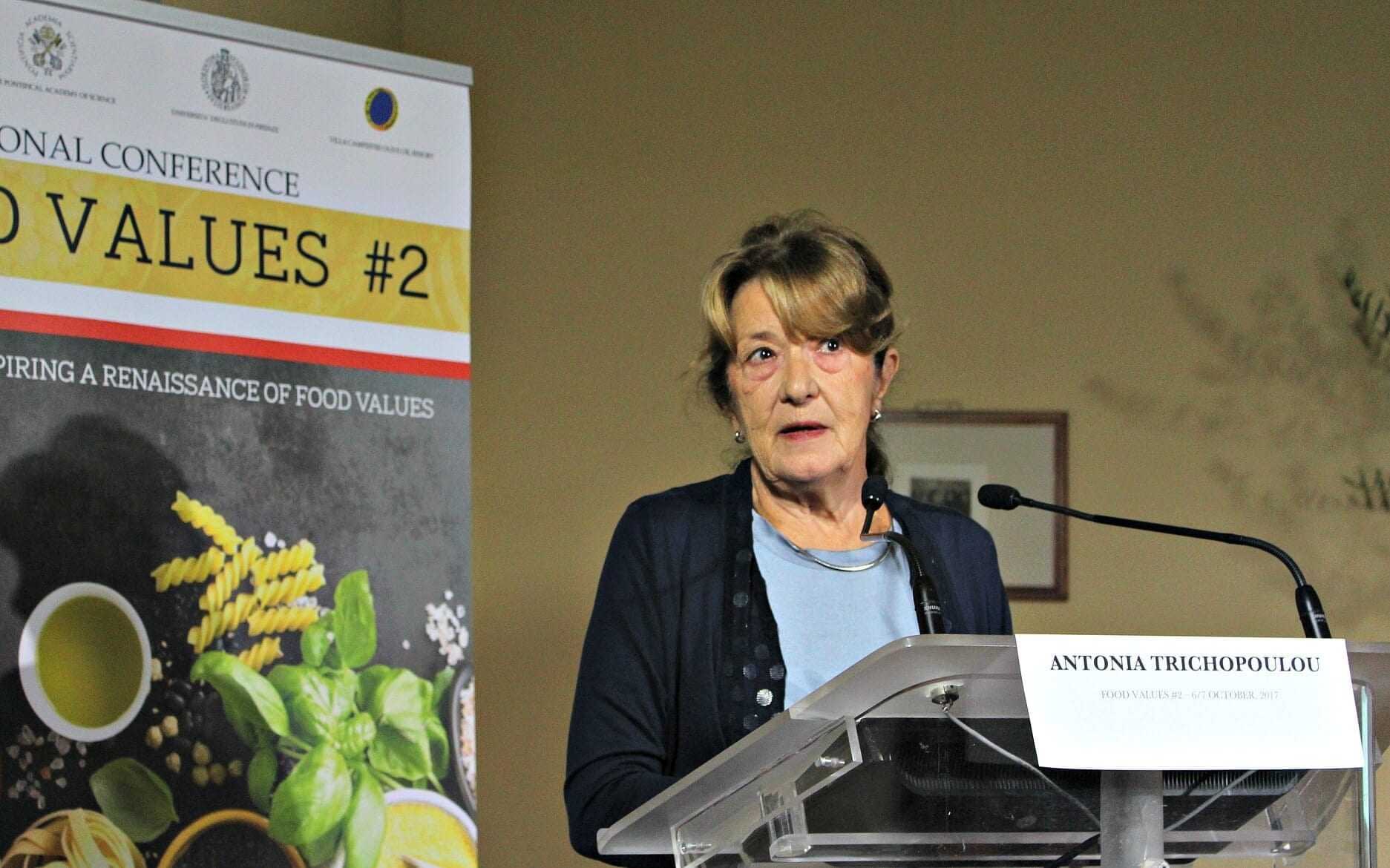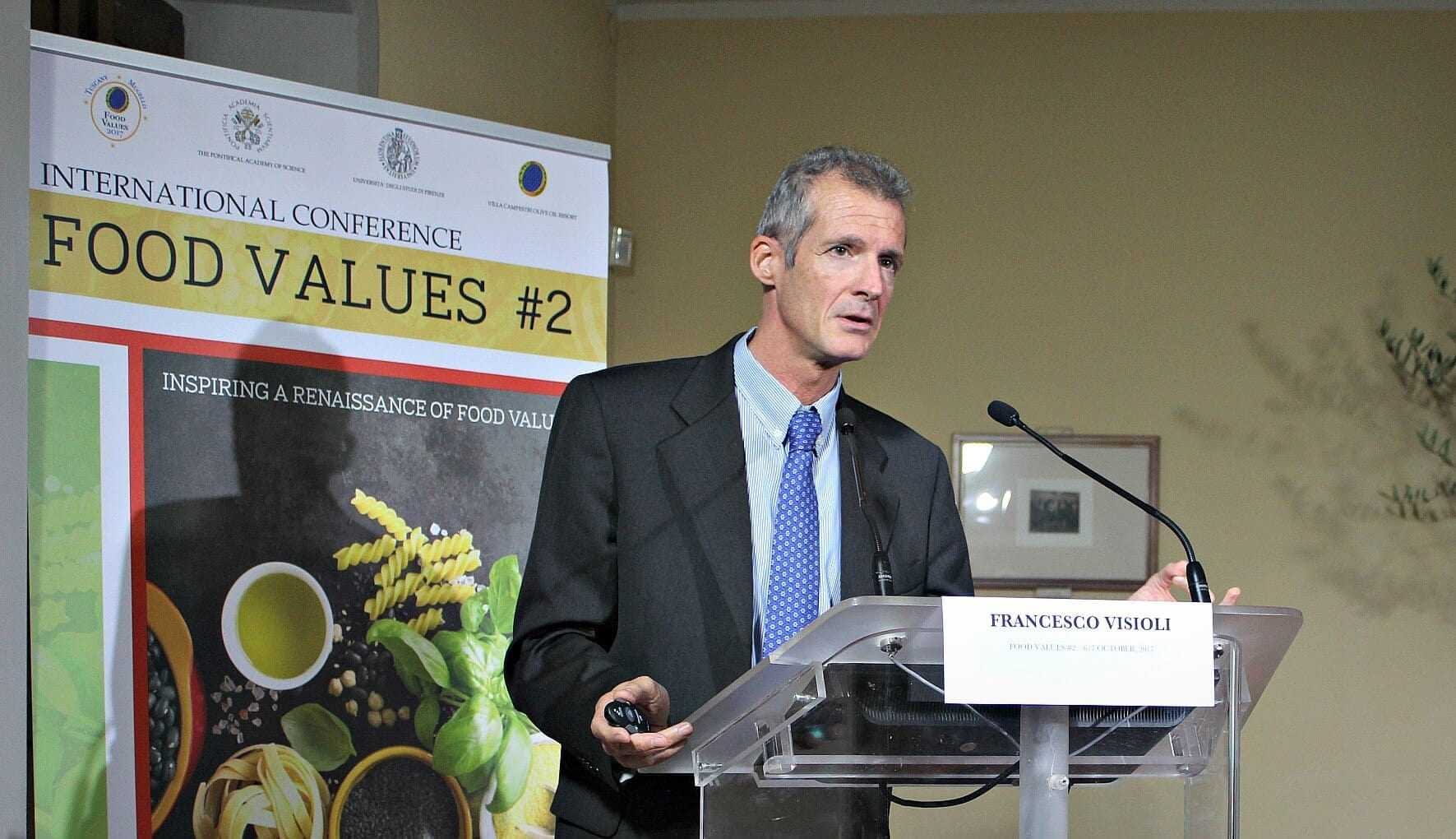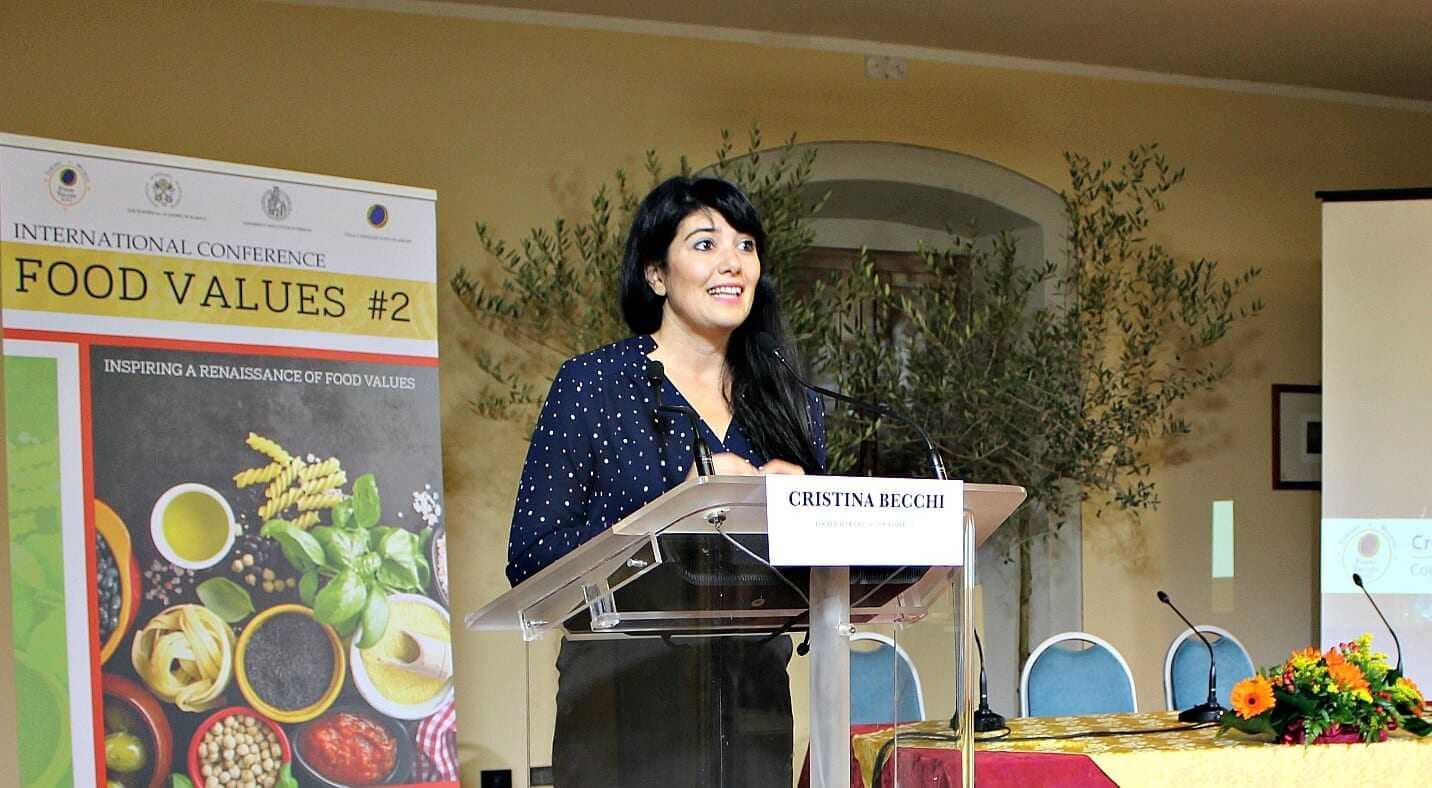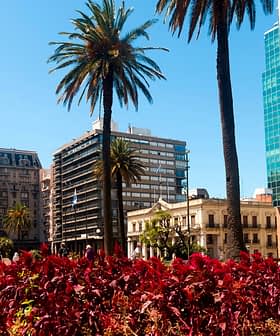2nd 'Food Values' Conference Held in Tuscany
Experts from a wide range of backgrounds met at Villa Pecori Giraldi in Borgo San Lorenzo to discuss the relevance of the Mediterranean diet and explore new approaches and proposals.
 Francesco Visioli
Francesco VisioliThe second International Conference on the Mediterranean Diet, ‘Inspiring a Renaissance of Food Values’ was held October 6 – 7 at Villa Pecori Giraldi, in Borgo San Lorenzo (Florence), under the auspices of the Pontifical Academy of Sciences, the University of Florence, and Villa Campestri Olive Oil Resort.
There is an urgent need to reappraise our relationship with food and its preparation.
The two-day event featured presentations from policymakers, agronomists, public health officials, professors and culinary experts on the relevance of the Mediterranean diet, olive oil, and healthier eating habits in the context of today’s industrialized fast-paced society, with a view to outline new approaches and proposals to be presented to world health ministers and related organizations.
The day after, following the principles of the convention, the Oleoteca Villa Campestri and the National Carlo Collodi Foundation signed an agreement to promote food education and olive oil culture for children.
“We brought together speakers and guests from a broad range of backgrounds to discuss the value we place on our food, in the context of increasing recognition of the importance of traditions and food quality to ensure health and sustainability,” said the founder of the conference Paolo Pasquali opening the congress.
Values intertwined with health, cultural traditions, quality, and sustainability were underlined by the president of the conference, the chancellor of the Pontifical Academy of Sciences of the Vatican City, Monsignor Marcelo Sànchez Sorondo.
The discussion started from ‘The Last Supper’ by Giotto, examined by Donatella Lippi of the University of Florence. The artwork, which inspired many artists over the centuries, was the subject of a study that investigated the content of the meals and the changes in kinds of food and size of portions over time, thus providing interesting clues to detect how foods were used in art and how this practice may reflect, or inspire, real-life settings.
The adherence to culture and traditions of the MedDiet was presented by Antonia Trichopoulou of the Hellenic Health Foundation of Athens, who also focused on its sustainability and the “respect for seasonality; foods less demanding in primary energy, and limited environmental impact, due to low consumption of animal products and thus a small water footprint and low greenhouse gas emissions.”

Antonia Trichopoulou
Thanks to the beneficial properties of its components, the MedDiet is one of the healthiest dietary patterns. “The near totality of epidemiological studies and several human trials show that an adequate micronutrient, such as vitamins, minerals, polyphenols, and essential fatty acids intake is associated with positive modulations of surrogate markers of degenerative disease, notably cancer and cardiovascular disease,” Francesco Visioli of the University of Padua observed.
Francesco Sofi of the University of Florence emphasized the role of plant-based diets as a useful instrument for preventing disease, recognizing the need for modern societies to reaffirm the link between natural, sustainable food and the health of individuals and communities. He called for a new approach whereby “food choices must be strongly supported by clinical behavior change efforts, health systems reforms, novel technologies, and robust policy strategies targeting economic incentives, schools and workplaces, neighborhood environments, and the food system.”

Francesco Visioli
In the perspective of food marketing, Pierre Chandon of the Insead Sorbonne University Behavioral Lab of Paris observed that today’s eating disorders and the obesity epidemic are largely driven by the ever-increasing availability of large portions of food. He proposed the ‘less size — more pleasure’ solution which will provide both for an improvement of the perception of a reasonable portion and package sizes and for a focus on the sensory enjoyment of eating rather than on satiation or value for money.
“There is an urgent need to reappraise our relationship with food and its preparation” said the Cambridge-based author and one of the founders of ‘Food Values,’ Simon Poole, who called on policymakers to take bold decisions to address the impending increase in chronic disease, “in order that the economic environment is more conducive to making healthy food choices, and that every child receives an adequate education to learn to understand and value excellence in the preparation and enjoyment of good food.”

Councilor of Culture of Borgo San Lorenzo, Cristina Becchi
The fundamental role of extra virgin olive oil as a staple of the Mediterranean diet was highlighted by Jean-Xavier Guinard of the University of California at Davis. “The way olive oil clearly embraces tradition and yet is a focus of innovation in the current reinvention of food, diet, and lifestyle makes it the perfect vehicle for studying food science, culinary arts and behavioral nutrition that sustain the Mediterranean diet and the food values associated with it,” he remarked.
Ancient grains as an example of a renaissance of old values were discussed by Stefano Benedettelli of the University of Florence. Several studies have suggested that they could present a healthier and a better nutritional profile than modern wheats by providing more vitamins, minerals and nutraceutical compounds. Moreover, they constitute a viable option, being environmentally sustainable.
Montaña Cámara Hurtado of the University Complutense of Madrid promoted wild plant foods as an excellent source of bioactive compounds. “Their traditional consumption must be preserved as a good alternative for the limited variety of vegetables currently consumed, improving the quality and making possible a diversification of modern diets,” she suggested.
Claudio Peri of the University of Milan proposed a way to ensure the success of local production and the marketing of excellent products: The creation of healthy ‘Communities of Practice’ of small companies involved in the production-marketing chains. “They could benefit from many advantages, including an effective control of critical points (feedback), connections that allow introducing elements of one practice into another (brokering), and sharing of artifacts, documents, terms, concepts, and other ‘boundary objects’ around which they can organize their interconnections.”
“To truly preserve the MedDiet and expand its acceptance, we have to focus on continuously raising the quality and visibility of its plant-based core, from vegetables to grains and olive oil,” said Greg Drescher of The Culinary Institute of America. He suggested elevating the status of the recipes and techniques that have historically made the plant-forward flavors of the Mediterranean so appealing.
“Chefs within and outside of the Mediterranean have a special opportunity to showcase in their restaurants the traditional genius of everyday, traditional Mediterranean village cooking with plant proteins,” Drescher added. “Long live the chickpea! And this is all about values – food values,” he said.








